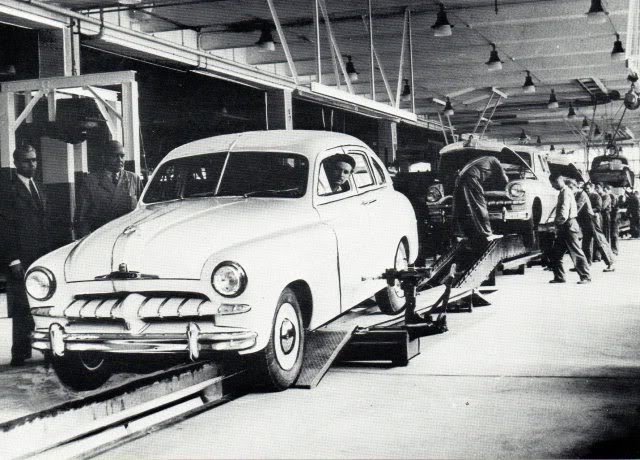OTAN News
Non-Linear Learning Examples: For Teachers and Students in the Digital Age
 Ford Vedette (Sweden) 1949 (CC BY-NC-SA 2.0) by IFHP97
Ford Vedette (Sweden) 1949 (CC BY-NC-SA 2.0) by IFHP97
Joey Lehrman and Jose Adorno's article Non-linear Learning Examples: For Teachers and Students in the Digital Age reflects on how schools developed curricula much like the assembly lines of the age. Jobs of the past "demanded procedural thinking," so teachers presented, front and center of the classroom and lectured with step-by-step instruction.
Similarly, perhaps many people have experienced the online version "that looks something like this: watch a video, read an article, and then post to a discussion board (and reply to two classmates!)." The writers are not suggesting this model is "inherently bad or good."
However, "the jobs of today are different," which means schools of today should reflect this difference. Today's workers are required to be "proficient problem-solvers, communicators, collaborators, and lifelong learners." They need to understand more than how to place packages on a pallet. In today's world, it's necessary to "set goals, collaborate and draw others into their learning process as needed, to be willing to try new things, make mistakes, and embrace them as opportunities to learn and grow."
The February 2023 EdTech Strategy Session presented two ideas of what this "non-linear, messy, and modern learning could look like."
- Flexible Digital Skills Instruction for Educators in Google Slides
Digital Skills for College and Career Navigators | Module 1 - Google Forms (Google Slides Presentation)
This resource provides pathways for people to set goals, share resources, and the freedom to get to the goal in their own way of learning. - On-Demand Tech Support and Tutorials in Glide
Digital ATDN On Demand Videos
At its core, the app provides choices for the user to explore different applications and resources, allowing a non-linear approach to how they continue to develop their skills in their profession.
The authors suggest providing an environment which fosters "non-linear learning, which may foster self-efficacy, inclusivity, and learning agency." They urge adult educators to continue experimenting and sharing.
Full Article: Non-Linear Learning Examples: For Teachers and Students in the Digital Age

